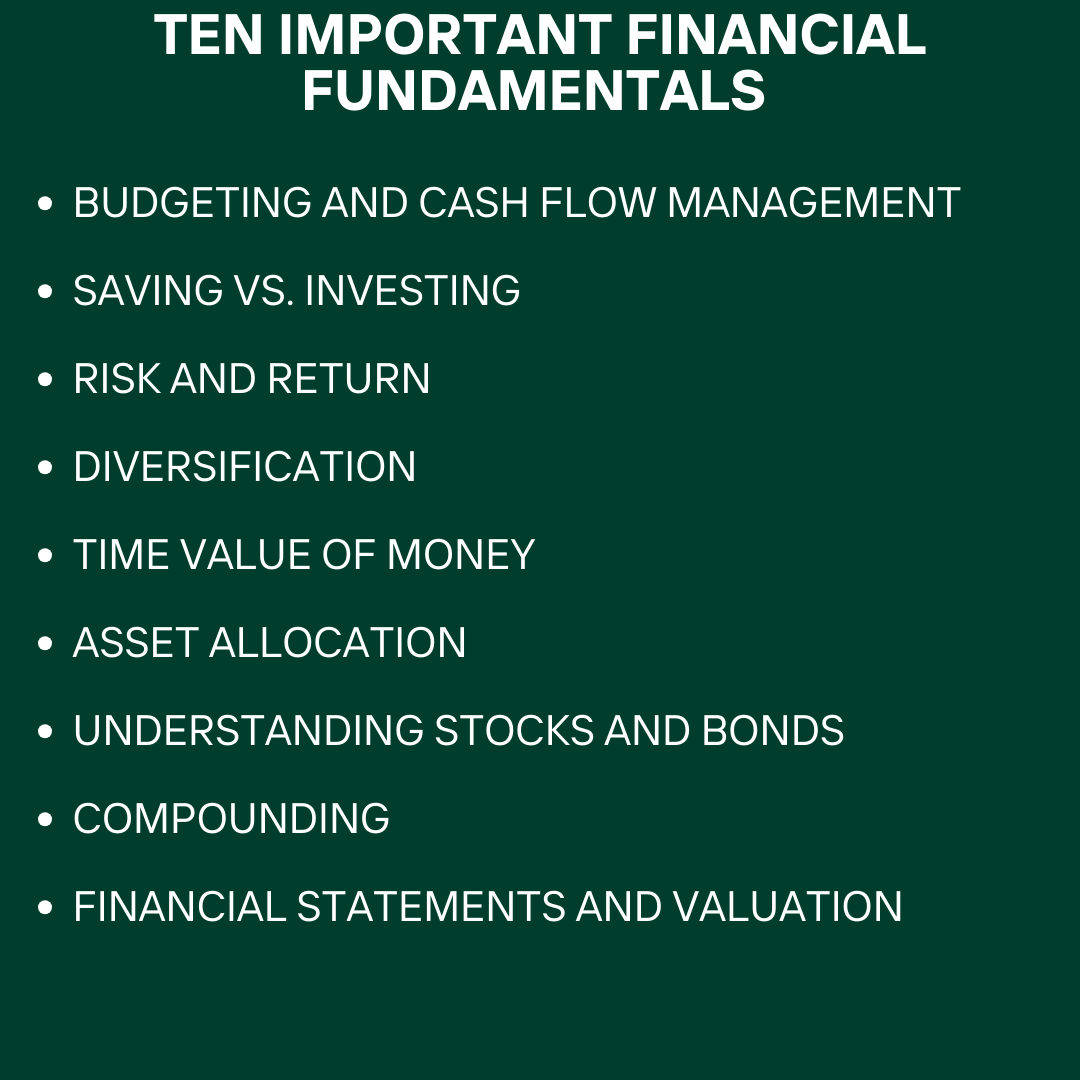Financial literacy
Financial literacy is key for self-directed investors as it empowers them to make informed decisions and manage their investments wisely. Here are the 10 most important financial fundamentals to get familiar with:
1. Budgeting and Cash Flow Management:
○ Understanding how to track income, expenses, and savings is the foundation of financial health. A solid budget helps ensure you have funds available to invest and manage your risk.
2. Saving vs. Investing:
○ Saving is for short-term goals with little risk (e.g., an emergency fund), while investing is for long-term wealth accumulation with a higher risk. Knowing the difference helps set proper expectations and strategies.
3. Risk and Return:
○ Every investment comes with a trade-off between potential risk and return. Grasping how to assess and manage risk relative to expected returns will guide your investment choices.
4. Diversification:
○ Diversifying across different assets (stocks, bonds, real estate, etc.) reduces risk and smooths returns. It's crucial to spread investments across sectors, industries, and geographical regions.
5. Time Value of Money:
○ Money today is worth more than money in the future due to its potential to earn returns. This principle is essential for understanding interest rates, the impact of inflation, and investment growth.
6. Asset Allocation:
○ Asset allocation is the strategy of dividing your portfolio into different asset classes (stocks, bonds, etc.) to balance risk and return according to your goals, risk tolerance, and time horizon.
7. Understanding Stocks and Bonds:
○ Familiarize yourself with how these two primary types of investments work. Stocks represent ownership in a company, while bonds are debt issued by entities that pay interest over time.
8. Compounding:
○ The ability of an investment to grow exponentially due to reinvested earnings is a powerful tool for long-term investors. Understanding compounding can help you take advantage of growth opportunities over time.
9. Taxation and Tax-Advantaged Accounts:
○ Learn how taxes impact your investments and how tax-advantaged accounts can help you minimize taxes on earnings and increase long-term wealth.
10. Financial Statements and Valuation:
• Understanding key financial statements (balance sheets, income statements, and cash flow statements) and methods of valuation (like price-to-earnings ratio) allows investors to assess a company’s financial health and potential for growth.
Mastering these fundamentals enables a more confident approach to investing, as it provides a solid foundation for evaluating opportunities and managing financial risks effectively.

